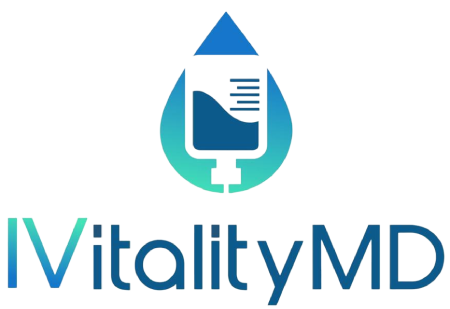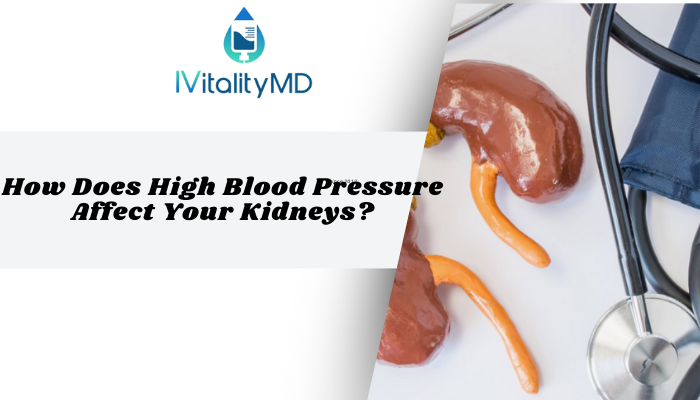Have you ever thought that the kidneys are frequently the first organs affected by many diseases? It is true! Neglecting your kidneys and gut health can offer severe hazards in the area of non-communicable or noninfectious illnesses, especially in the case of hypertension (HTN). But how does high blood pressure affect your kidneys?
What are Symptoms of Kidney Damage from High Blood Pressure?
Many people with high blood pressure may not experience symptoms. Headaches might occasionally indicate high blood pressure, although this is uncommon.
Early stages of chronic kidney disease (CKD) may not produce apparent symptoms. As renal disease advances, some people may develop edema, defined by swelling.
Edema occurs when the kidneys struggle to clear extra fluid and salt, causing swelling in the legs, feet, ankles, or, less commonly, the hands and face.
Advanced kidney disease symptoms might include:
- Reduced appetite, nausea, or vomiting
- Drowsiness, weariness, or sleep disruptions
- Headaches or difficulty concentrating
- Urinary frequency changes
- Generalized itching, numbness, dryness, or skin discoloration
- Weight loss.
- Muscle cramps
- Chest pain or shortness of breath
Therefore, it is essential to address the elaborations of how does high blood pressure affect your kidneys and the relevant functional medicine services. Doing so would help you to stay alert and attend to the abnormal yet minor warning signs on time.
The Renal Connection
Blood vessels refer to the collection of arteries, veins, and capillaries. This miraculous bundle is responsible for ample blood supply to all the required sites of your body. Therefore, it is paramount to go through the associations that reveals how does high blood pressure affect your kidneys.
Blood Pressure and Renal Arteries
The kidneys play an essential role in general health maintenance. It filters waste and excess fluids from the circulation to form urine. The renal arteries feed blood to the kidneys. Chronic high blood pressure can cause damage to these arteries. In a long time, this intrinsic injury might reduce blood supply to the kidneys, restricting their ability to work accurately.
Glomerular Filtration Rate (GFR)
The glomerular filtration rate, or GFR, can be fluctuated by high blood pressure. This rate determines how efficiently the kidneys filter blood and separate the waste materials. As blood pressure rises, the delicate structures in the kidneys responsible for filtration become susceptible to damage. A lower GFR is a strong predictor of deteriorating renal function.
The Domino Effect
In clinical and medical services sciences, the domino effect alludes to a circumstance where a simple modification can modify the direction of impending health outcomes. For example, when you feel feverish, your body’s energy levels decline, you feel exhausted, and you don’t even feel hungry like normal. As a whole, a seasonal fever can have adverse effects on your health.
If a well-being irregularity isn’t tended to on time, it becomes a silent killer. Tragically, a time will come when you’ll not be able to oppose the root cause of sickness – your objective would be to decrease the effect of that illness instead of eradicating it from scratch!
Hypertensive Nephropathy
Prolonged hypertension can cause hypertensive nephropathy or nephro-angio-sclerosis. This problem is characterized by harm to the kidneys’ little blood vessels (capillaries), which, in the end, prompts unfortunate filtration and the body’s maintenance of harmful material items. Hypertensive nephropathy is a common reason for chronic kidney illness.
Formation of Kidney Stones
Hypertension could prompt the development of kidney stones. These stones are also called nephrolithiasis or renal calculi. Urine’s content can change under high blood pressure, making it more crystallized or concentrated. Over the long run, these crystals can join and shape kidney stones, causing uneasiness and harming kidneys.
Protect Your Kidneys
Despite the overwhelming science behind the compromised condition of your kidneys, there are some practical and easily implementable ways to lessen the impact of hypertension on your renal system.
Blood Pressure Management
Monitoring and managing your blood pressure might sound overwhelming, but achieving it is relatively more straightforward. All you have to do is focus on your daily meals. Prefer homemade foods with minimum inclusion of salt. Keep yourself active throughout the day via a moderate-intensity workout, and you’re all set!
Prompt Detection and Evaluation
Learn to monitor your blood pressure levels regularly. Doing so helps to diagnose hypertension early on. Early lifestyle adjustments or prescriptions can help forestall or limit renal problems. If you have a family history of hypertension, be mindful of your children’s lifestyle right from the start!
Hydration and Diet
Hydration is the most convenient method for further developing your kidney well-being. Water aids the eradication of contaminants, toxins, and undesirable substances. It keeps up with the body’s electrolyte balance. In addition, a diet high in raw or steamed vegetables and whole grains with negligible addition of processed foods and salt can help to improve overall kidney function.
The Bottom Line
Learning all about how does high blood pressure affect your kidneys is the first step toward avoiding future adverse outcomes. You must take a proactive approach to blood pressure management and make lifestyle changes. Doing so alleviates high blood pressure and kidney disease outcomes. Your kidneys are delicate organs. They require the highest care, and keeping your blood pressure under control is an obligatory aspect of that care!

